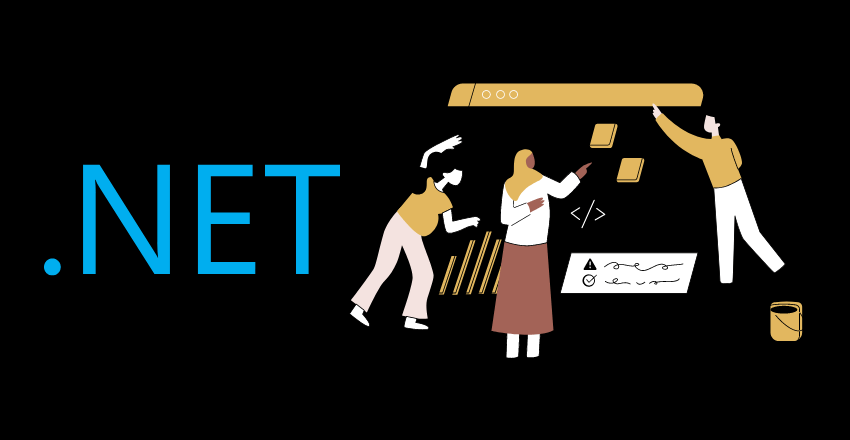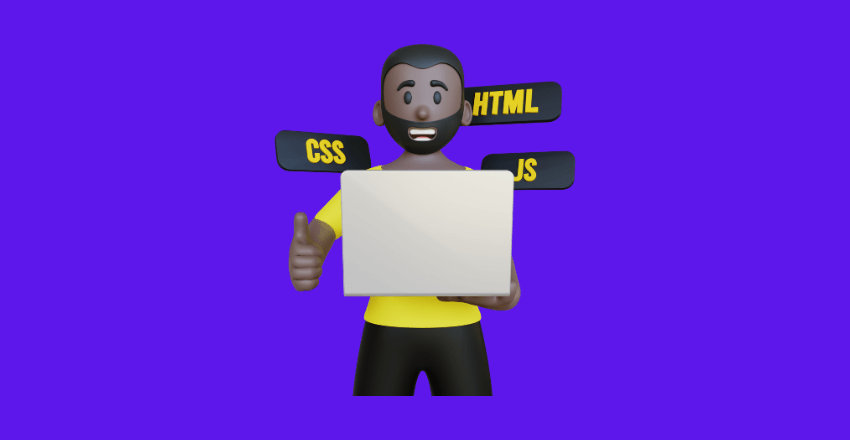
Skills for .NET Developers go beyond mere coding. Mastery in C#, deep database knowledge, and cloud proficiency are today’s gold standards in the industry.
If you’re a .NET developer, staying competitive in the field requires an ongoing commitment to learning and honing your skills. As we look ahead to 2023, the demands of the industry will continue to evolve, and developers will need to stay up-to-date with the latest trends and technologies to remain at the forefront.
To help you prepare for the future, we’ve compiled a list of the essential skills that every .NET developer should possess. From programming languages to database management and problem-solving skills, these abilities will help you stay competitive in the .NET development field.
Key Takeaways
- Key skills for .NET developers in the current year
- Staying competitive in the .NET development field
- Continuous learning is essential for success
Understanding the Fundamentals of .NET Development
As a .NET developer, it is crucial to have a solid understanding of the fundamental skills required for successful coding. These skills form the foundation upon which more advanced concepts are built, and they are in demand across a wide range of industries. Let’s take a closer look at some of the essential abilities that every .NET developer should possess.
Object-Oriented Programming
Object-oriented programming (OOP) is a methodology that simplifies code by breaking it down into smaller, reusable components. Every .NET developer should have a solid grasp of OOP concepts and be able to apply them in C#. This includes understanding classes, interfaces, inheritance, and encapsulation. By using OOP, developers can create code that is easier to maintain, debug, and reuse across different projects.
The .NET Framework
In addition to understanding the basics of OOP, every .NET developer should also have a thorough understanding of the .NET framework. This includes understanding how components like class libraries, generics, and LINQ work together to create powerful and efficient applications. With this knowledge, developers can write code that is optimized for the .NET framework and perform better than code written without a .NET-specific approach.
C# Proficiency
C# is vital for .NET development. Every developer should know its basics, including data types, variables, and control structures. Mastering C# leads to clear and efficient code, ensuring success in .NET development.
.NET development skills are crucial for developers to remain competitive. With knowledge of OOP, the .NET framework, and C#, they can produce efficient code for today’s software industry.
Proficiency in C# Language
To be a successful .NET developer in the current year, it is crucial to have a strong command of the C# programming language. C# is an object-oriented programming language used for developing applications on the .NET framework.
Developers with a comprehensive understanding of C# are better equipped to write efficient and maintainable code, implement object-oriented design patterns, and work effectively within the .NET development ecosystem.
Some of the key skills that .NET developers should possess when it comes to C# include:
- Mastery of data types, variables, and control structures
- Proficiency in object-oriented concepts such as classes, inheritance, and polymorphism
- Understanding of LINQ (Language-Integrated Query) and how to use it to manipulate data
- Expertise in asynchronous programming and multithreading to create responsive and scalable applications
By having these skills, developers can create efficient, scalable, and highly functional applications that run on the .NET framework.
It is essential to continuously improve one’s C# skills as new features and updates are released regularly. Developers who stay up-to-date with new features of the language and best practices can deliver high-quality code and stay competitive in the .NET development field.
Knowledge of the .NET Framework
In order to stay competitive in the .NET development field, it is essential for developers to have a thorough understanding of the .NET framework. This framework is a collection of libraries and tools that are used to develop and execute .NET applications. There are several key aspects of the framework that developers should be familiar with:
| Aspect | Description |
|---|---|
| Class Libraries | The .NET framework includes a vast collection of pre-built class libraries that developers can use to quickly and easily add functionality to their applications. These libraries cover everything from basic data types to complex algorithms. |
| Generics | Generics are a powerful feature of the .NET framework that allow developers to write reusable code that works with different data types. |
| LINQ | Language Integrated Query (LINQ) is a set of features that allow developers to query and manipulate data from different sources using a single syntax. This can greatly simplify data access and manipulation in .NET applications. |
| Asynchronous Programming | Asynchronous programming is a key feature of the .NET framework that allows developers to write applications that can perform multiple tasks simultaneously, improving performance and responsiveness. |
Developers should be familiar with these and other aspects of the .NET framework in order to build efficient, scalable, and maintainable applications. By staying up-to-date with the latest updates and tools provided by the framework, developers can stay competitive and deliver high-quality solutions to their clients.
Experience with ASP.NET
Key skills for .NET developers this year include ASP.NET experience. ASP.NET, developed by Microsoft, lets developers create dynamic websites and apps. Understanding the MVC architecture is vital for success in ASP.NET. Additionally, expertise in Razor syntax, which generates HTML from server-side code, is essential for .NET developers.
Server-side scripting in ASP.NET lets developers run code on the server before it reaches the client’s browser. It’s great for creating dynamic content and managing user inputs. ASP.NET experience is crucial for .NET developers this year. It helps them create strong web applications that align with modern standards and user demands.
Knowledge of Front-end Development Technologies

A successful .NET developer must have knowledge of front-end development technologies to stay competitive in the .NET development field. HTML, CSS, and JavaScript are commonly used front-end technologies that work well with .NET. Having an understanding of how these technologies work and how to integrate them is essential for any .NET developer.
HTML, or Hypertext Markup Language, is the backbone of any web page. It is used to define the structure and content of a web page. A .NET developer must have a fundamental understanding of HTML and its syntax. As an example, the following code will display ‘Hello World’ on a web page:
<html>
<head>
</head>
<body>
<h1>Hello World</h1>
</body>
</html>CSS, or Cascading Style Sheets, is used to define the presentation of a web page. CSS is used to style HTML elements, such as fonts, colors, and layouts. A .NET developer must have a good understanding of CSS and its syntax. Here is an example code that will style the ‘Hello World’ heading:
<html>
<head>
<style>
h1 { color: red; }
</style>
</head>
<body>
<h1>Hello World</h1>
</body>
</html>JavaScript is a programming language that is used to create interactive and dynamic web pages. It is used to add interactivity to web pages and create responsive designs. A .NET developer must have a basic understanding of JavaScript and its syntax. Here is an example code that will display an alert box when the ‘Hello World’ heading is clicked:
<html>
<head>
<script>
function showAlert() {
alert("Hello World");
}
</script>
</head>
<body>
<h1 onclick="showAlert()">Hello World</h1>
</body>
</html>By having a good understanding of front-end development technologies, a .NET developer can build responsive web applications that are not only functional but also visually appealing.
Understanding Database Management
As a .NET developer, having a strong understanding of database management is essential for success in the current year. In-demand abilities for successful .NET coding include knowledge of SQL queries, database design, and ORM (Object-Relational Mapping).
SQL queries are used to extract and manipulate data from relational databases. Understanding the syntax and logic behind SQL queries is critical for developers who work with data-driven applications. Additionally, having knowledge of database design principles allows developers to create efficient and organized databases that can handle large data sets.
ORM tools like Entity Framework and NHibernate can automate database tasks and abstract away many of the complexities of working with a database. These tools allow developers to write code in .NET and have it automatically translated into SQL queries that interact with the database.
Developers can also use ORM tools to map C# objects to database entities, providing a seamless integration between the application and the database. By mastering these skills, developers can create high-quality, scalable, and efficient database-driven applications.
Version Control Systems
Version control systems are essential tools for .NET developers to stay organized and efficient. A version control system allows developers to keep track of changes made to their code, collaborate with team members, and revert to previous versions if necessary. By using version control systems, developers can ensure that their codebase is up-to-date and stable.
Git is a popular version control system and widely used in the .NET development field. Git allows developers to create branches of their codebase, make changes independently, and merge those changes back into the main codebase seamlessly. Understanding and using Git effectively are crucial skills for staying competitive in the .NET development field.
Other version control systems like SVN (Subversion) and Mercurial also have their advantages and are worth exploring. However, regardless of the version control system used, the ability to use it competently is a must-have skill for .NET developers.
Consider using version control systems to make collaboration with team members smoother, record code changes, and make it easier to revert to previous versions. Mastering version control systems is a key way to stay competitive in the .NET development field.
Continuous Integration and Deployment
Continuous Integration and Deployment (CI/CD) undeniably stands as a cornerstone of contemporary software development. Not only does it expedite teams’ workflows, but it also minimizes errors and elevates code quality. For a .NET developer, grasping these principles can significantly enhance your marketability in the current landscape.
Central to mastering .NET coding is the proficiency to establish a CI/CD pipeline tailored for a .NET project. Among the renowned tools facilitating this are Jenkins, Azure DevOps, and TeamCity. Utilizing these, along with other tools, automates the intricate steps of building, testing, and deploying, thereby refining the workflow and diminishing potential pitfalls.
By leveraging CI/CD, developers are empowered to merge code alterations more regularly, validate them promptly, and roll them out incessantly. Consequently, this agility allows teams to adapt swiftly to feedback and furnish value to their clientele at an accelerated pace. Therefore, to maintain a competitive edge in the .NET development arena, a deep-seated comprehension of CI/CD is indispensable.
To delve deeper, examining code samples that illustrate CI/CD pipelines can offer invaluable insights into the seamless integration and automation of the software development stages. Ultimately, to thrive in .NET coding, it’s essential to be adept with CI/CD tools and methodologies, ensuring you consistently produce top-tier software with efficiency and precision.
Problem-Solving and Troubleshooting Skills

As a .NET developer, you’ll often face complex problems that require sharp analytical and troubleshooting skills. Indeed, your ability to identify and fix bugs, analyze performance issues, and optimize code will set you apart from your peers and ensure you remain competitive in the .net development field.
Now, when faced with a problem, the first thing you should consider doing is breaking it down into smaller, more manageable pieces. Doing so will not only help you identify the root cause of the issue but also aid in devising a solution. Moreover, you should also leverage debugging tools that are integrated into your development environment, such as Visual Studio. These tools are invaluable as they allow you to step through your code, observe the values of variables, and pinpoint where the problem lies.
Additionally, it’s crucial to employ logging and monitoring tools to track issues and discern patterns. By diligently monitoring error logs and performance metrics, you can swiftly identify areas that necessitate improvement and act accordingly.
Furthermore, you should always be proactive in seeking ways to optimize your code. This entails adopting more efficient algorithms, minimizing the number of database queries, and enhancing the performance of your network requests. By alleviating the load on your application, you guarantee a smoother and more efficient experience for your users.
Cultivating effective problem-solving and troubleshooting skills is an ongoing journey. By immersing yourself in the latest technologies and frameworks, participating in industry conferences, and engaging with fellow developers, you’ll be well-equipped to hone your skills and maintain your edge in the .net development field.
Communication and Collaboration Skills
Being a successful .NET developer undeniably requires excellent communication and collaboration skills. In today’s dynamic environment, it’s no longer sufficient to just write code in isolation. Instead, developers must actively engage with project managers, designers, and other stakeholders to craft outstanding products. To navigate this collaborative landscape, here are some pivotal skills to hone:
Firstly, Active Listening: This isn’t just about hearing but genuinely focusing on the speaker’s words, seeking clarification when needed, and responding thoughtfully. By practicing active listening, you ensure alignment with everyone and clarity in project requirements.
Secondly, Effective Writing: Beyond just coding, adept writing skills are paramount for lucid and succinct communication, be it through email, chat, or documentation. It becomes especially vital when translating complex technical jargon into digestible information for those less versed in tech.
Next, Collaboration: A harmonious team dynamic is essential. Developers should be adaptable to a team setting, receptive to feedback, and equally adept at offering constructive critiques. One can bolster these collaboration skills through team-building exercises or specialized workshops.
In essence, these competencies are the bedrock for crafting top-tier products and fostering a seamless rapport with colleagues. Thus, as a .NET developer, continuous introspection and enhancement of these communication and collaboration faculties are not just beneficial but imperative to stay ahead of the curve and master the nuances of proficient .NET development.
Keeping Up with the Latest Trends and Technologies
As a .NET developer, it is essential to stay up-to-date with the latest trends and technologies to stay competitive in the field.
Continuous Learning
Continuous learning is crucial to staying competitive. The .NET framework is constantly evolving, and new technologies and tools are being introduced. Developers must stay current with the latest advancements to stay relevant in the market. Online courses, webinars, and industry conferences are excellent opportunities to learn about new tools and techniques.
Industry Conferences
Attending industry conferences is an excellent way to network with other developers, and learn about new trends and technologies in the field. Conferences like the Microsoft Build Conference and .NET Conf are great opportunities to stay up to date with the latest .NET updates and technology.
Exploring New Frameworks and Tools
Exploring new frameworks and tools are essential for developers to remain competitive. Developers can explore other frameworks like .NET 5, Blazor, and Xamarin, which provide improved performance and productivity. These trending frameworks can help .NET developers to enhance their technical skills and become subject matter experts in cutting-edge technologies.
By continuously learning and exploring new technologies, .NET developers can stay ahead of the competition and deliver high-quality solutions that meet their clients’ needs.
FAQs – Skills for .NET Developers

What are the foundational skills for a .NET developer?
Core Languages: Every .NET developer should be proficient in languages like C# and VB.NET.
ASP.NET MVC: Understand the principles of building web applications using the MVC architecture.
Entity Framework: Grasp the concepts of this ORM for database operations.
How important is database knowledge for .NET developers?
Absolutely crucial! A .NET developer should be familiar with SQL Server and be able to design, query, and optimize databases. Knowledge of LINQ to interact with databases using .NET is also beneficial.
Do .NET developers need to know about front-end technologies?
Yes, they do. While .NET is often associated with back-end development, a well-rounded developer should have a grasp of front-end technologies like HTML, CSS, and JavaScript. Familiarity with frameworks like Angular or React can be a plus.
How essential is cloud knowledge for modern .NET developers?
With the rise of cloud computing, it’s becoming increasingly important. Developers should be familiar with Azure, Microsoft’s cloud platform, and understand how to deploy and manage .NET applications in the cloud.
What soft skills should .NET developers cultivate?
Beyond technical prowess, .NET developers should hone communication skills to articulate technical concepts to non-technical stakeholders. Problem-solving and team collaboration are also vital for success in the field.

Gordon is a distinguished technical author with a wealth of experience in software development, specializing in .NET C#. With a career spanning two decades, he has made significant contributions as a programmer and scrum master at prestigious organizations like Accenture and Boston Consulting Group, where he has played a pivotal role in delivering successful projects.
Since the release of .NET C# in 2001, Gordon’s passion for this powerful programming language has been unwavering. Over the past 20 years, he has honed his expertise in .NET C# development, exploring its vast capabilities and leveraging its robust features to create cutting-edge software solutions. Gordon’s proficiency extends to various domains, including web applications, desktop software, and enterprise systems.
As a technical author, Gordon remains committed to staying at the forefront of technological advancements, continuously expanding his skills, and inspiring fellow technologists. His deep understanding of .NET C# development, coupled with his experience as a programmer and scrum master, positions him as a trusted resource for those seeking guidance and expertise. With each publication, Gordon strives to empower readers, fuel innovation, and propel the field of scientific computer science forward.







